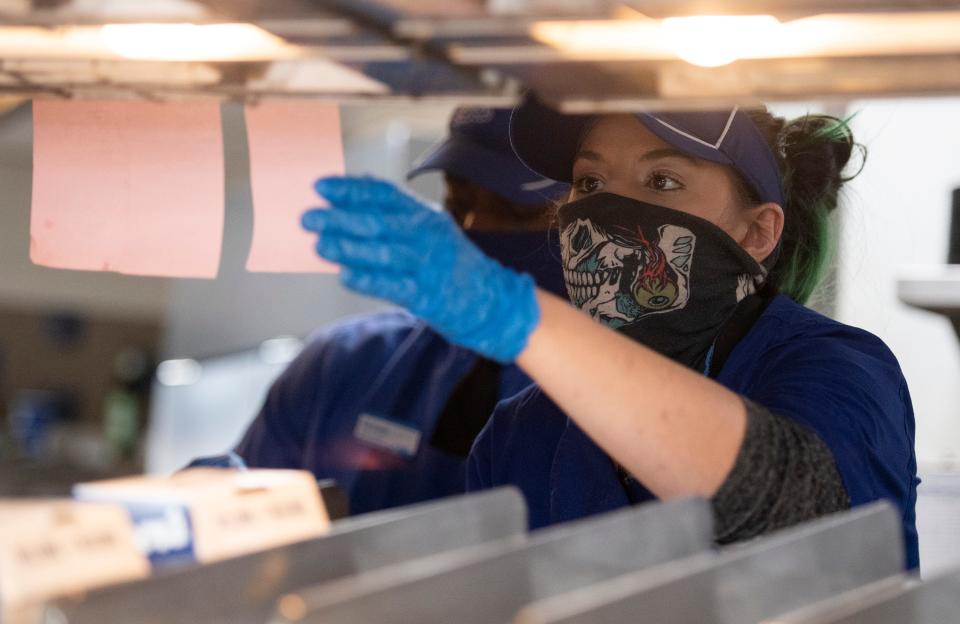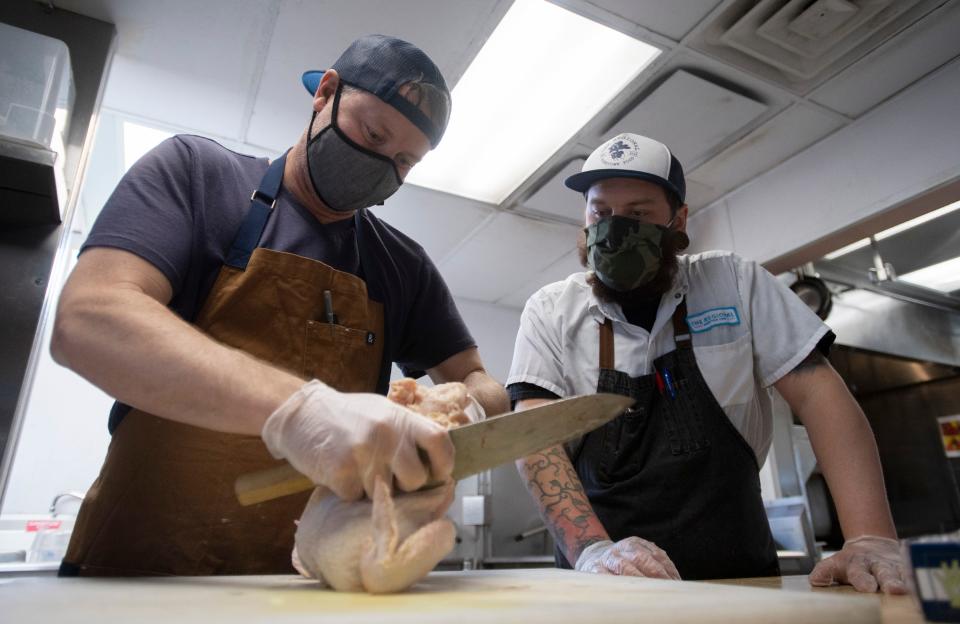Fort Collins votes against minimum wage hike, postpones discussion for 6 months
For months, Fort Collins City Council has been discussing whether it’s time to increase the city’s minimum wage beyond Colorado's and, if so, what it should be raised to.
Council members first discussed a $15 minimum wage.
Then an $18 or $19 minimum wage.
But on Tuesday night, council unanimously voted to keep the minimum wage in Fort Collins in line with the state’s and revisit the conversation with, hopefully, more community engagement.
The minimum wage in Colorado is $12.56 per hour and will increase to $13.65 per hour in 2023. According to city documents, a livable wage in Fort Collins is $18.39 per hour for a single adult and $19.92 per hour for two working adults and a child.

When voting to postpone the conversation, council members discussed the lack of community engagement with employees who would be impacted by the increase, the hope for more targeted outreach efforts and how, because of inflation and recovery efforts, now might not be the right time to enact a local minimum wage.
“We've had a lot of businesses come out and talk about why they're against it, and we really haven't heard from employees that would be impacted from this,” Mayor Pro Tem Emily Francis said.
“So I do think there is value in maybe postponing this and doing additional outreach to think about what number would be a good number to get up, focusing more on residents who would be really impacted.”
Mayor Jeni Arndt said that when council brought this up as a priority, they didn’t know inflation would be so high and the state minimum wage would have a 9% increase for next year based on that.
Arndt said she supported continuing the conversation in the coming months, adding that she doesn’t want to see businesses leaving the city because they can’t afford to pay the required minimum wage, something she said she’s seeing in Denver.
“I'm afraid that this might be a tool that doesn't help the people that we think we might want to be helping,” Arndt said.

Council member Kelly Ohlson initially said he was disappointed in the council for not implementing a higher wage but later got behind postponing the conversation if council set a date to reconvene on the issue and made good-faith efforts to take action.
“I guess I got to try to trust that people are serious about doing something for the lowest-paid workers among us, but I'm not convinced. So I hope I'm proven wrong,” Ohlson said. “I really want to stick to some kind of vote … so that we make some kind of decision that we promised to make.”
Council decided to postpone the vote until May 16, with council member Julie Pignataro adding that if council determines at that point there’s not enough engagement or research, they can postpone. She said setting a date “pressures to keep the conversation going.”
Other council news:Not 'financially feasible:' Fort Collins City Park train project won't continue
What was council considering?
The options presented to council Tuesday both would have significantly increased minimum wage in the city beyond the state minimum wage but would have increased it at different rates.
The first option, which was more informed by council's feedback, increased the local minimum wage to $20.82 by 2030, which would be an annual salary of $43,000 for someone working a 40-hour week. In this scenario, pay was increased by $1.50 in the first year of raises, then $1.75, then $1.60 before using the consumer price index, CPI, to calculate ensuing increases.
The second option, which was more informed by business owners and resident feedback, increased the wage to $18.74 by 2030, a $38,700 annual wage. That option increased pay by $1 the first three years and then used an estimated CPI for future increases. Staff recommended that if council voted to increase the wage on Tuesday, they use this option.
Neither option had an increase in 2023 beyond the state’s 9% increase in order to give businesses more time to prepare.
But council felt it still wasn’t the right time, and some were concerned with the amount of research done on the issue.
Ginny Sawyer, senior project manager at the city, who presented the issue to staff, told council it was “hard to make a recommendation” for an exact number to hit with minimum wage. Staff compared wages in Fort Collins with other cities and states — like Washington, D.C., Seattle, Denver and Flagstaff, Arizona — but it was like comparing apples to oranges, and Sawyer said even after wrapping up data analysis that they couldn’t present a “target number.”
Prior to the vote, about half a dozen people, many of whom were business owners, spoke on the issue, addressing the harm they said it would cause their businesses.
Lauren Storeby, owner of Snack Attack sandwich shop in Midtown, said if council voted to increase the minimum wage, “small businesses would suffer and corporations would thrive.”
“There are many businesses that are still recovering, and there are a lot that are just hanging on by a thread. I guarantee you over this next year, even with the state's minimum wage increase, we're gonna see more restaurants or small small businesses closed, which is really unfortunate,” Storeby said.
Ann Hutchinson, president of the Fort Collins Area Chamber of Commerce, also asked council to vote against the increase, encouraging its members to “consider the unintended consequences” and postpone the vote indefinitely.
One small-business owner who went before council supported the raise. She said that she knew her business would have to adjust in order to have the money to pay a higher minimum wage, but “it would be worth it because people come before profits.”
Why was Fort Collins considering a minimum wage increase?
Council began considering a local minimum wage after the state passed a bill in 2019 allowing municipalities to establish a minimum wage higher than state’s. At the time, staff conducted an analysis and plan, but it didn’t move forward.
Then in 2021, the current council identified raising the minimum wage as one of its 31 priorities.
Staff engaged with businesses, employees and community groups using an online survey and used the National Business Survey to gauge the community’s stance on increasing the wage. They also conducted outreach with the Fort Collins Area Chamber, the Latino Chamber, local labor unions, health sector organizations, nonprofits and neighboring communities, according to staff.
Despite engagement efforts, including about 1,500 responses to surveys, city documents show that staff still found it difficult “to develop data-driven rationale to help identify a local minimum wage where benefits outweigh concerns and perceived or real unintended consequences.”
Regardless of the decision not to increase the local wage, the city of Fort Collins will begin paying its employees a $15 minimum wage in 2023, as outlined in the city’s budget.
Fort Collins weather alertUp to 6 inches of snow, coldest temps of season on tap
Molly Bohannon covers Fort Collins and Colorado State University for the Coloradoan. Follow her on Twitter @molboha or contact her at mbohannon@coloradoan.com. Support her work and that of other Coloradoan journalists by purchasing a digital subscription today.
This article originally appeared on Fort Collins Coloradoan: Fort Collins votes against minimum wage increase

